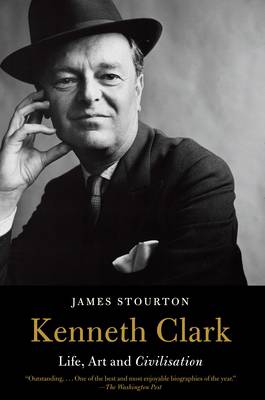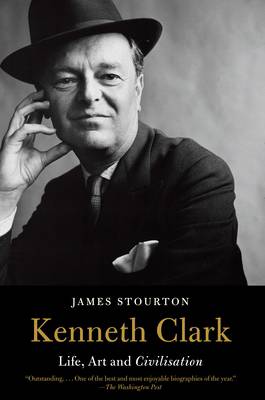
- Retrait gratuit dans votre magasin Club
- 7.000.000 titres dans notre catalogue
- Payer en toute sécurité
- Toujours un magasin près de chez vous
- Retrait gratuit dans votre magasin Club
- 7.000.0000 titres dans notre catalogue
- Payer en toute sécurité
- Toujours un magasin près de chez vous
30,95 €
+ 61 points
Format
Description
Throughout his brilliant, multifaceted career as a scholar and patron of the arts, Kenneth Clark, later Lord Clark of Saltwood worked tirelessly to bring art to the people. Born in 1903 to a wealthy family and educated at Oxford, Clark became the youngest-ever director of the National Gallery at age twenty-nine. In 1939, as war with Hitler loomed, he arranged for the Gallery's paintings to be hidden in slate mines in Wales to keep them safe. When the air raids began, he held concerts at the Gallery to keep up the spirits of Londoners. Later, at the height of the Cold War, his program Civilisation brilliantly conveyed a message of humanism and hope--wrapped inside a thirteen-part history lesson on Western art--to a remarkably wide audience. A man of contradictions, he was an elitist who believed to his core that access to art was "the right of every man." With Kenneth Clark, James Stourton gives us the definitive biography of an unlikely popularizer--and renews Clark's vision of art as a powerful force against the threat of chaos.
Spécifications
Parties prenantes
- Auteur(s) :
- Editeur:
Contenu
- Nombre de pages :
- 512
- Langue:
- Anglais
Caractéristiques
- EAN:
- 9780525435358
- Date de parution :
- 14-11-17
- Format:
- Livre broché
- Format numérique:
- Trade paperback (VS)
- Dimensions :
- 155 mm x 231 mm
- Poids :
- 616 g

Les avis
Nous publions uniquement les avis qui respectent les conditions requises. Consultez nos conditions pour les avis.






